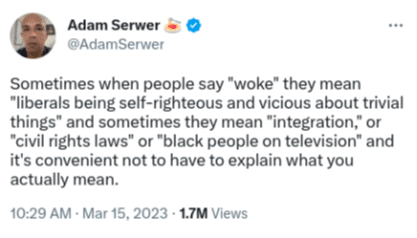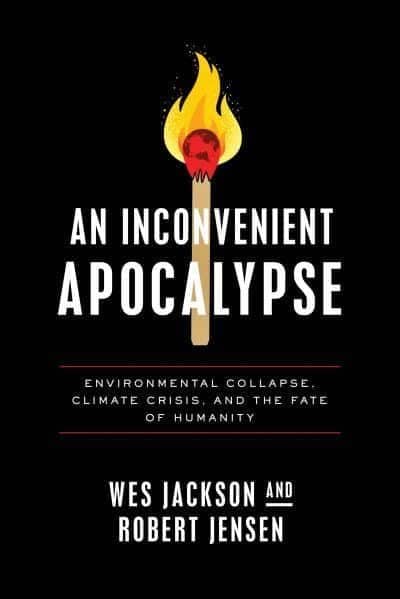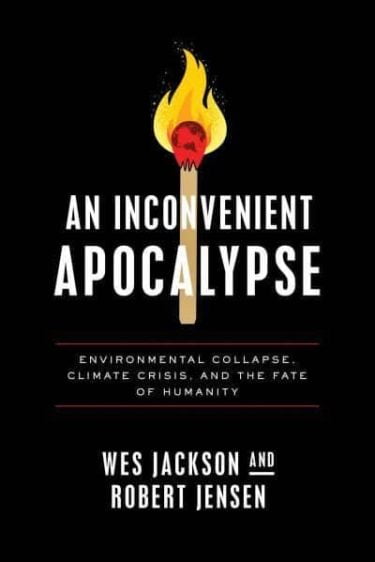People often tell me that I have a lot of patience. It comes up more often than you might imagine. Just last week, for example, I was giving a talk for Essex Skeptics in the Pub in Chelmsford, outlining my research into the White Rose antivaccination movement and its role in radicalising people into extreme views, when I was interrupted by a voice at the back of the room. “This is bullshit, I can’t listen to any more of this”, the lady yelled, “He’s trying to tell us that all these people are racists, when they’re not!”.
She was convinced, we’d go on to learn, that I was building towards a conclusion that everyone who spends their time on Telegram asking questions about COVID-19 and the safety and efficacy of the vaccine must also be antisemitic conspiracy theorists, obsessed with ideas like the Great Replacement. Of course, this wasn’t the argument I was making, nor something I’d even agree with, but she felt so certain in her prediction of my direction that it wasn’t worth hearing me finish my talk, it was important to interrupt and make everyone aware of what she assumed was coming next.
While the heckling was a little off-putting, her motivation was understandable: she felt certain that there was more to the Covid story than we were being told, and she had nothing but distrust for the government who told us it, so anyone who disagreed with her must have ulterior motives for discrediting the movement she had such sympathy for.
This wasn’t the first time one of my talks has attracted dissent – a previous version of the talk in Glasgow was gate-crashed by more than a dozen members of the local Stand in the Park antivaccination group, who made for a lively Q&A (where they denied knowing each other, yet still stood outside at the end of the night handing out copies of The Light Paper and inviting people along to their group), and my pre-pandemic tour of Skeptics in the Pub groups to talk about the flat earth movement often attracted flat earth proponents, intent on filming themselves arguing with the arrogant round-earther. In those moments, the hardest thing to manage isn’t the pointed questions of those who disagree with me, but the reactions of the rest of the room – as a speaker, the last thing I want is for the frustrations of a roomful of skeptics with the one or two dissenting voices to bubble over into ridicule, or aggression, and so keeping the evening from descending into a fruitless shouting match becomes the primary goal.
I also recall one memorable encounter at Nottingham Skeptics in the Pub, during my talk about our campaign to end NHS provision of homeopathy. Right at the end of the talk, as I was wrapping up, three men wandered in – they’d been stuck in traffic, having driven down from Liverpool just to see me (presumably unaware that I also live in Liverpool), and managed to miss the entire talk they’d come to see… yet they still happily monopolised the Q&A with attempted gotcha questions about the ills of Big Pharma. I answered as many of their questions as felt fair, in an audience of 90+ people who had actually listened to the talk, but promised I’d speak to them afterwards and talk about anything they wanted.
So, once the regular Q&A was over, we sat in the pub’s beer garden while they warned me about fluoride and the dangers of drinking unfiltered tap water, and why we have to be so careful about what we eat because we have no idea what chemicals are in our food these days, and how many of those chemicals are carcinogenic… points that were all punctuated, with zero trace of irony, by long draws on the cigarettes they were all smoking. Perhaps the known carcinogens are less harmful than the unknown ones; or perhaps the hardest thing to spot is our own inconsistencies.
Back in Essex, once the heckling subsided, I was able to finish the talk, highlighting (as was always the intended conclusion) that people who find themselves disaffected and outside of the mainstream are more vulnerable to being manipulated by bad actors – which is precisely the reason why Tommy Robinson’s channel, and other far-right influencers, see anti-vaccination spaces as such a fruitful recruiting pool. That doesn’t mean that everyone who joins the anti-vaccination movement is far right, but it does mean that they’re going to be regularly exposed to material designed to radicalise and recruit them, and a percentage of those people will, over time, find themselves swayed – especially because, having left mainstream society over their Covid conspiracy views, it is much harder for people to then turn their back on their new anti-vax community if it seems overly comfortable platforming extremist views. How many communities can you walk away from before there are no more left to turn to?
The Q&A at Essex Skeptics was an enjoyable affair, as I tried to answer to the best of my abilities, as honestly as possible, the questions and concerns of our new anti-vax friends. “Why didn’t the BBC cover the march against lockdown?”, they demanded. I explained that there was a fair bit of coverage of the march, not least when a speaker called for the execution of nurses and doctors, but it probably wasn’t as much coverage as the anti-vax movement had wanted, because we all think the thing we care about most deserves more attention than the rest of society gives it.
“Why have they never isolated the virus?”, they asked. They have, I explained, and if you don’t accept that, it might be because your definition of what counts as isolating a virus isn’t one that any modern virologist would accept. “Why hasn’t anyone won that prize money that will go to the first person who can prove the virus exists?”, they asked. Probably because the criteria they’ve set for winning the prize isn’t reasonable, it’s deliberately too strict for anyone to be able to meet. It’s akin to asking you to prove that Mars exists, but the only proof I’ll accept is you handing me some soil from the surface of Mars that you’ve personally collected. If the bar from what constitutes proof is set unreasonably high, there is little mystery as to why it can’t be met.
As the night progressed, and the Q&A ended, our new friends joined the organisers for a post-event drink, and we continued to talk. “I wouldn’t describe myself as a flat earther”, explained a friendly, fairly shy chap as he put down his drink, “But I just don’t believe that the Sun could be 93 million miles away”. “Why not?”, I asked him, “How do you think things would look if the Sun actually was 93 million miles away?”. He paused. “I just have to go by what I can observe, that’s all we can do really, we have to just trust what we can see for ourselves and prove for ourselves. And it just doesn’t look like it’s that far away”. “So, if you were asked to choose, what shape would you say the world was?” “Well”, said the not-a-flat-earther, “I’d probably lean more towards it being flat”.
The conversation worked its way back to Covid. “Well, I personally don’t believe in germ theory, but there are so many scientists who’ve said that Covid isn’t real, and that the vaccine is dangerous. Why aren’t those people being listened to?”
“Because they’re in the minority”, I explained, “and more than 99.9% of the people in the same field as them completely disagree with them”.
“That’s because all those other one’s are being paid off!”, he replied.
“How do you know that?”, I asked. “You only trust the evidence you’ve seen for yourself, you said, so what evidence do you have that makes you say that all the other doctors and scientists are being paid to lie? Other than that they disagree with you?”
He laughed. “Ok, right, you’ve got me there. So, what do you think about 9/11?”
And so the conversation moved on, and we talked about why the BBC announced the collapse of World Trade Center 7 twenty minutes before it actually fell. Was that evidence of a chaotic and confusing day, in where several other buildings called “World Trade Center <number>” had already fallen? Or proof that the BBC was part of an international plot… in which several nation states had decided to fake a terrorist attack to take down two of the most famous buildings in the world, but had decided to first alert the BBC to their plans (because, presumably, the BBC wouldn’t have covered the event correctly if they believed it was a real terrorist attack?), and to pass that information down through producers and news execs, to the person who programmed the teleprompter and on-screen captions, without anyone in that complex chain admitting to their role in over 20 years? You decide…
After a few hours of meandering conversation, taking in everything from the moon landing to Miracle Mineral Supplement to the ways in which alternative medicine clinics exploit vulnerable cancer patients, secure in the knowledge that the dead can’t tell their stories, the venue owners politely informed us it was closing time. “This was brilliant”, said the lady who heckled me. “I’ve really enjoyed this”, said her formerly shy companion, “I’ll definitely be coming again”.
Of course, I didn’t change their minds – as one of them had told me, they had been ‘awake’ for nearly 30 years now, and a single conversation was never going to be enough to overturn a lifetime of doubting the mainstream. But, hopefully, we were at least able to demonstrate that it is possible to disagree with their views, not because we’re paid to sow dissent, but because we have genuine concerns. And we were able to agree that, at the heart of it, neither they nor we were evil, and that we both wanted the best for people – we just disagreed as to what that might look like, and how best to achieve it.
This, I think is the real value in having these conversations. Not only do we come to understand why people diverge from mainstream consensus positions, and why they come to believe in things that fly in the face of evidence, but we also can demonstrate to the people we disagree with that we are not arrogant, smug know-it-alls, nor paid shills for Big Pharma. If we are going to be able to reach people, and if we are going to be successful in stemming the flow of misinformation, conspiracy and paranoia, we have to be able to be patient and personable, to be genuinely curious about other people and their motivations, and to understand as much as possible what can lead people off the beaten track, and into the wilderness.









